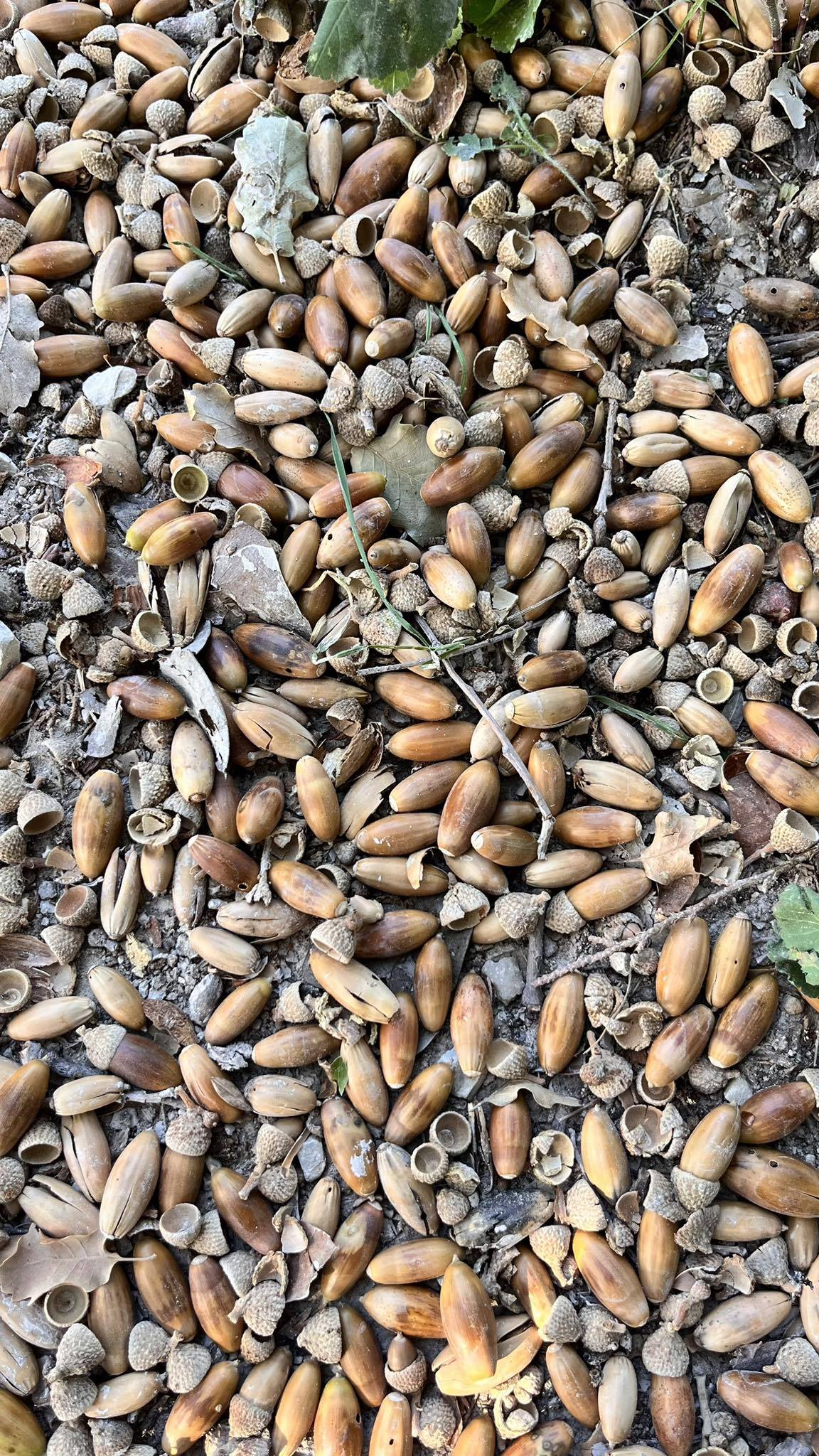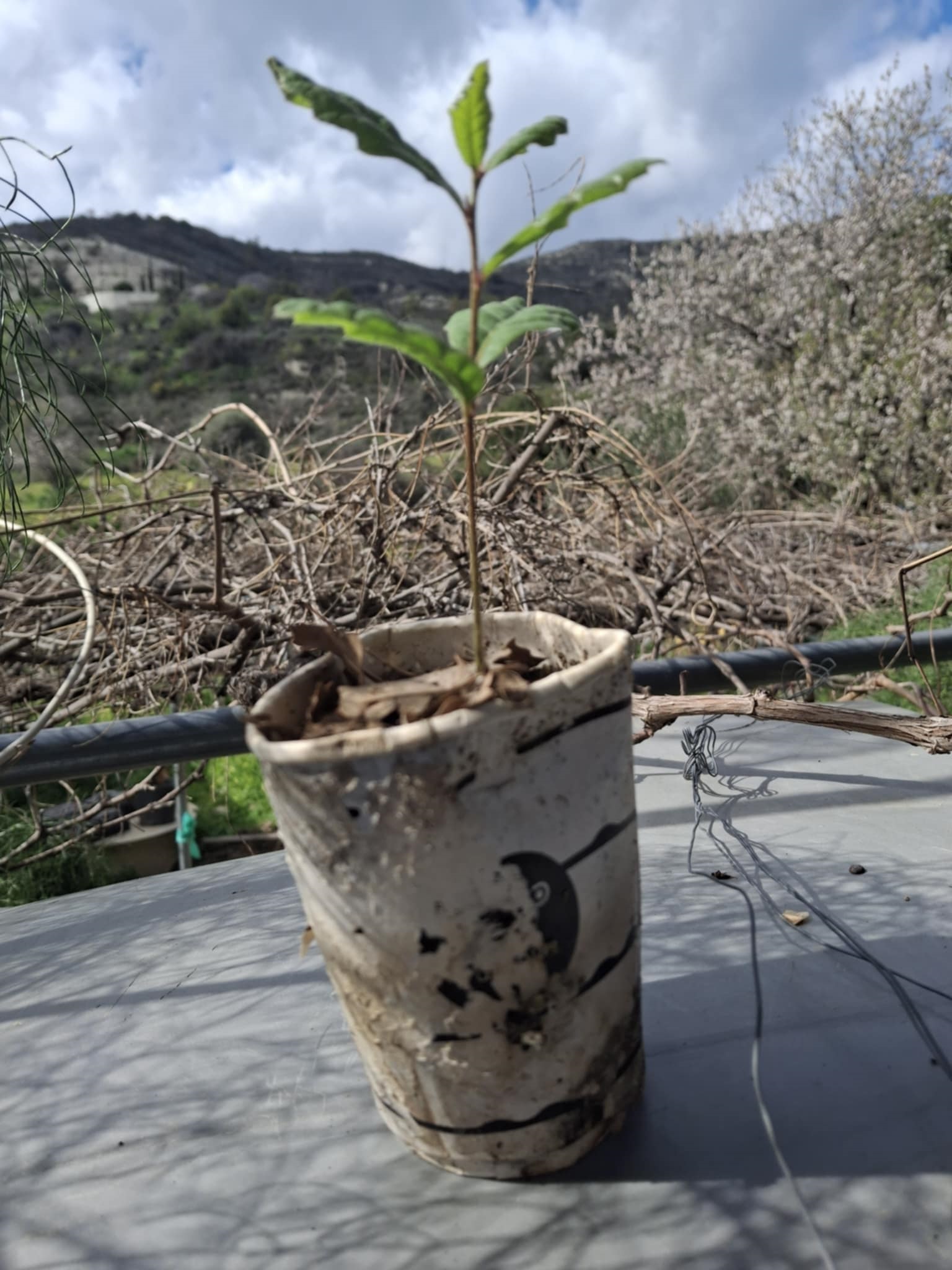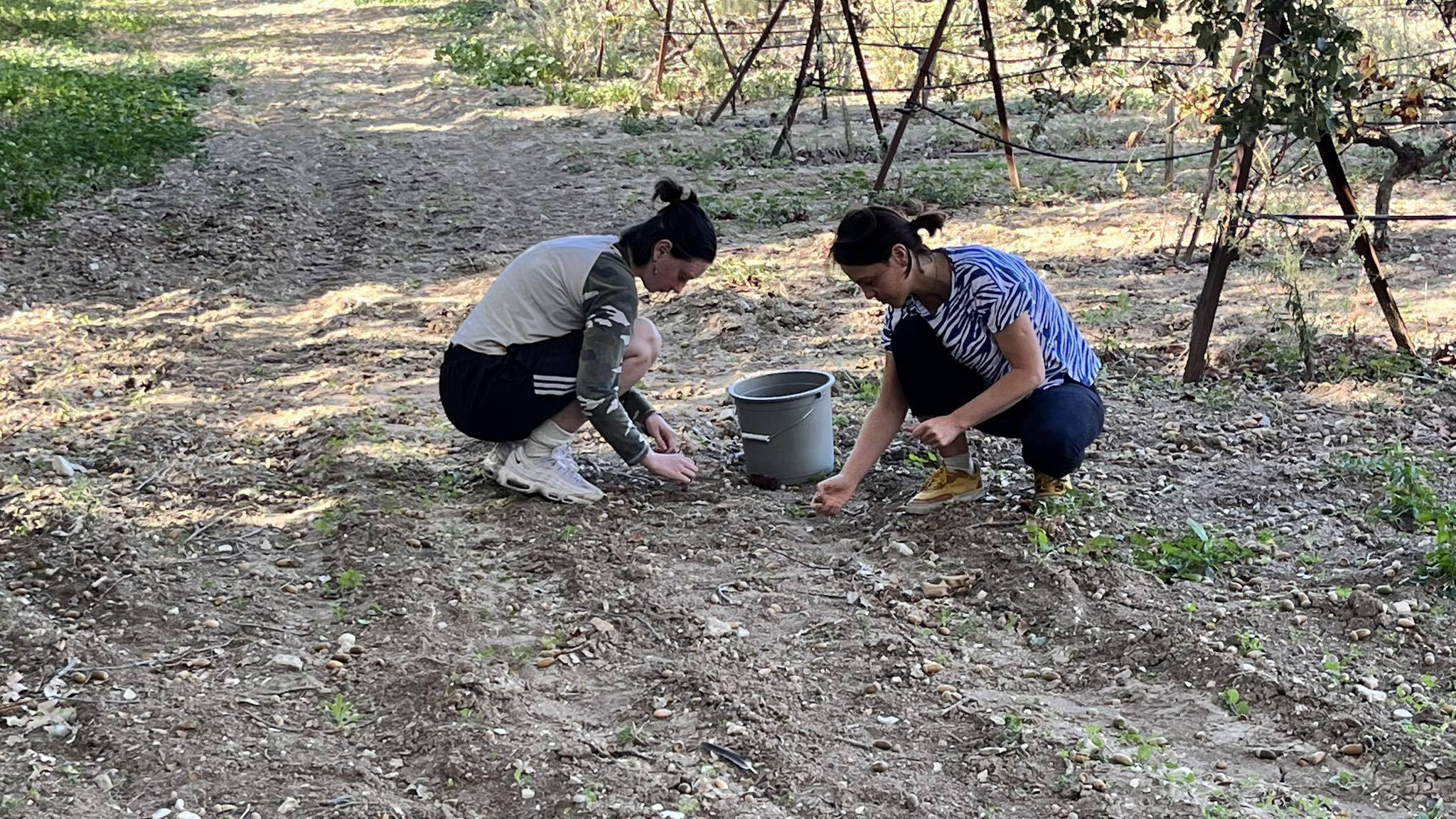By Martin Clark
The ‘Circular Economy’ involves sharing, leasing, reusing, repairing, refurbishing and recycling existing materials to give them a new, valuable and sustainable life. Our “Green Village” partnership involves entities and organisations revolving around Kato Drys Community Council and the Old Olive Mill, Pano Lefkara, in Cyprus. It was formed out of a European Union supported project called “Green Village – Exploring Sustainable Aspects of Village Life in Europe”. The project involved Cyprus but also the UK, Bulgaria, Romania, Germany, Ireland, Slovakia, Italy, Iceland and (as a third-party country, Kenya). Kato Drys community council represented Cyprus.
In Kato Drys, a village in the mountainous region of Cyprus’s Larnaca district, the name informs something of the history. ‘Drys’ is from the Ancient Greek for oak tree and leads us to words in modern day English such as ‘dryad’, a spirit that lives in the forest, a wood nymph or fairy. For the Greeks every tree had its dryad, and the oak was sacred to Zeus. The village (and lost ‘Pano Drys’) was once surrounded by oak woods but today, only a few isolated giants remain….

Our Green Village team want to plant a lot more oak trees, but we want to do it sustainably. We (with volunteers) gather acorns and plunge them in a bucket of water; if they float they won’t grow, they have got air inside from insect attack or they have started to rot and emit methane. Then we ‘chit’ (germinate) them by wrapping them in dampened old carpets from the village dump until they sprout. The final action is to plant the acorns in discarded paper coffee cups. The planting process involves getting leaf mould from below existing oaks to be sure of the right fungal species for carbon and nitrogen fixing.
The paper cups are a waste product with a use and a great example of the circular economy. It’s estimated that one billion disposable coffee cups are used worldwide every year – that’s more than two million cups thrown out each day.
The production and disposal of these cups contribute to global warming and pollution, with less than 1 per cent of them being recycled.
In our Green Village partnership, we want to change that.
Because the cups have a film of plastic and waste plastic can be a big environmental issue, we spent some time researching that issue. Pretty much all environmentalists think they are a better thing than plastic cups. It is also agreed that re-using them once and then not burying them deep in an anaerobic land fill is good but as they decompose on or near the surface, they do release microplastics.
For sure it’s better if those microplastics are in a non-agricultural land use zone, in a forested or wooded zone they are less potentially harmful.

All over the world they can be used for planting wild seeds, especially from trees, growing them for two to three years, then planting straight in the ground in non-agricultural land. The young oak trees (we also plant the bitter almond) are planted in carefully selected sites around Kato Drys, still in its (semi rotted away) paper cup, avoiding exposure and damage to the roots plus giving a bit of nitrogen as the paper decomposes. The newly planted tree gets a ‘mulching mat’ from cut up old carpet and a mini greenhouse made from thrown away corrugated (white) plastic to deflect the sun’s rays, gives shelter and conserves water.
The local coffee shops are pleased to give us the discarded cups to use as pots for new oak trees; it’s a chance for them to demonstrate their green credentials!
Our planting efforts require volunteers and another of our European projects, this time through ’Erasmus Plus’, has made us realise that tourists often love to get involved. The Bulgarian led “INHERIT” project involves the digitisation of tourism offers concerned with culture and nature.
Here in Cyprus the oak tree is very much part of Greek culture but is also a vital environmental element in mid-altitude groves, woodlands and forests. There are very many environmentally aware tourists who would love to do some tree planting and rejuvenate the ancient sylvan groves! INHERIT enables us to upload offers on a worldwide digital platform.
Martin Clark is a professional forester and land manager and the director of Grampus Heritage & Training, the UK’s most successful EU wide vocational training organisation, with decades of experience






Click here to change your cookie preferences